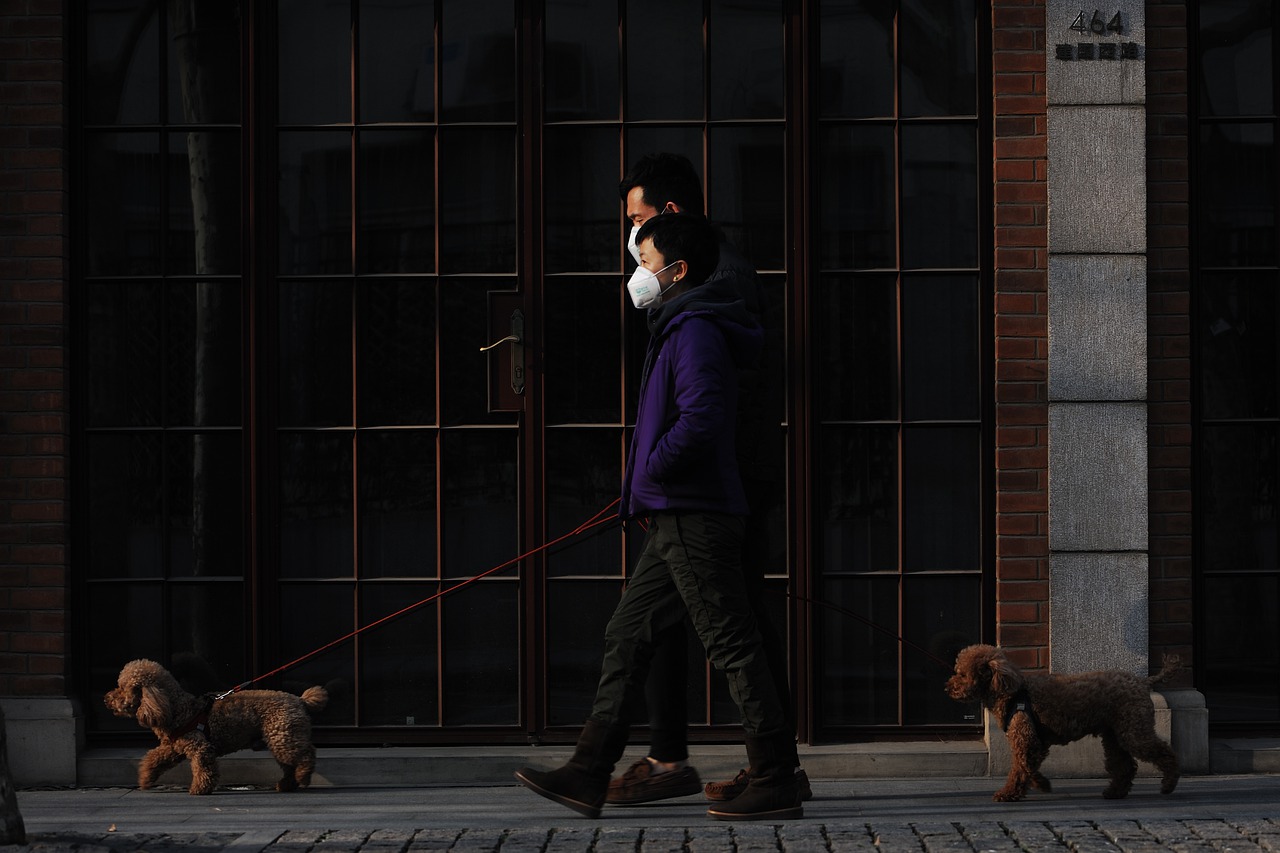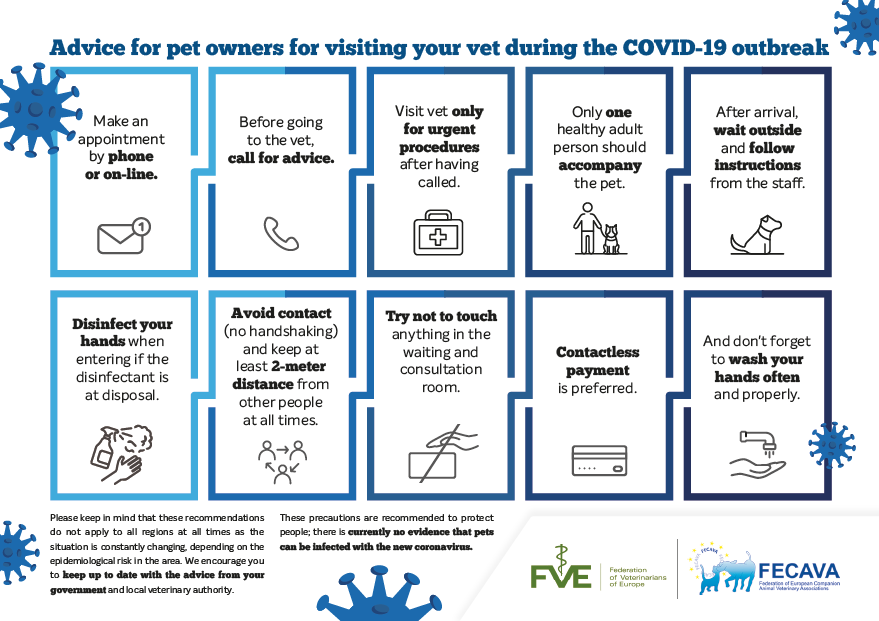COVID-19 (coronavirus) information for animal owners
Updated: 8 April 2020
We’ve put together some information to help you look after your animal during lockdown and understand what you can expect from your veterinarian.

What can I expect from my vet during lockdown?
Vets will try their best to give you the best possible care for your animals but please remember that this is a challenging time for everyone. While they can stay open, they can only provide essential care.
For pets, this means vets can only see them for emergencies or where there is a risk to animal welfare and the treatment can’t be put off until the lockdown ends.
For farms, vets can be on-farm to maintain essential, short-term animal health programmes to protect animal welfare and keep food production going.
Other veterinary services may be postponed until after the lockdown or, where appropriate, done using technology, such as video calling.
If you need veterinary help, call your vet first. You need to tell them if you or anyone in your house (or staff, for farms) is sick or self-isolating so that they can take measures to protect themselves and their staff and prevent further spread.
This is a difficult time for vets too and they’re putting themselves at risk to help your animals. So, please try to give them a bit of patience, understanding and aroha.
Can animals spread coronavirus?
There is no evidence that animals pose a serious risk spreading COVID-19 in New Zealand. Worldwide, the overwhelming cause of the spread of COVID-19 is human to human transmission.
While the risk is very low, it's a good idea to use physical distancing with animals and, if you touch an animal, wash your hands afterwards.

What about the reports of animals with COVID-19?
There is still a lot to be learned about COVID-19 and we don't know yet how the disease could affect different animals. What we do know is that the number of animals testing positive is very low and there is nothing to suggest that they play a role in the disease spreading among humans.
Many animals may be “dead-end hosts” which would mean they can’t spread COVID-19 to other animals or people.
Our advice is that you should try to have someone else care for your animals if you have been in contact with, or have, COVID-19. If that’s not possible, wash your hands before and afterwards and regularly wash their bedding and food bowls. Always wash your hands after touching your pets.
What should I do to protect my animal?
The risk of your animal catching coronavirus is very low and there is no evidence that it could give it to you. However, it’s always a good idea to wash your hands with soap and water after contact with animals.
During lockdown, treat your animal as part of your “bubble”. This means you shouldn’t let it have contact with people who aren’t in your household. Keep cats indoors as much as possible and make sure that dogs can’t get off the property.
The SPCA has some
useful tips on looking after pets during the lockdown.
What should I do if my animal gets sick?
Call your vet and follow their advice. During lockdown you need to ring them first.
If you are unwell or self isolating, or someone in your house is, you should tell your vet this when you call so that they can make arrangements to keep themselves and their staff safe. It may be best to arrange for someone else to take your animal to the vet if it needs to be seen so that you can remain isolated.
What should I do for my animal if someone in my home gets coronavirus or is in isolation?
If you or someone in your home is in isolation, the same process applies for animals as human members of the household.
If the person in isolation has not had close contact with the animal during the isolation period or the 2 weeks before that, they should try to minimise their contact with it and other household members. If possible, find someone who is well and not in isolation to help care for the animal. If the isolated person has to do it, they should wash their hands before and afterwards.